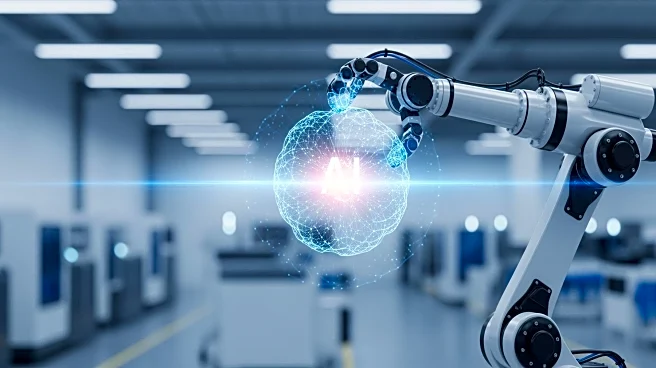What's Happening?
Meta has officially reorganized its AI division into four new groups, named Meta Superintelligence Labs (MSL), to enhance its competitive edge in AI development. The restructuring includes the creation of TBD Labs, focusing on foundation models like the Llama series, and other groups dedicated to research, product integration, and infrastructure. This move follows concerns that Meta was lagging behind competitors such as OpenAI and Google DeepMind. CEO Mark Zuckerberg has been actively involved in recruiting top AI talent to support this initiative.
Why It's Important?
The reorganization signifies Meta's strategic response to the rapidly evolving AI landscape, where competition is fierce among tech giants. By focusing on superintelligence, Meta aims to develop AI systems that can outperform human capabilities, potentially transforming various sectors. The company's investment in AI talent and infrastructure highlights the critical role of AI in its future growth, with implications for industry standards and technological advancements.
What's Next?
Meta's restructuring is expected to lead to advancements in AI technology, with potential applications in consumer products and infrastructure. The company's focus on superintelligence may result in new AI capabilities that enhance productivity and creativity. Stakeholders will be watching Meta's progress closely, assessing its ability to deliver competitive advantages and real-world applications.
Beyond the Headlines
The pursuit of superintelligence involves ethical considerations, such as the impact on employment and the potential for AI to reinforce biases. Meta's approach may influence industry practices and standards, with implications for privacy and data security. The shift away from open-source models could affect innovation access for smaller players, raising concerns about monopolization in the AI sector.









